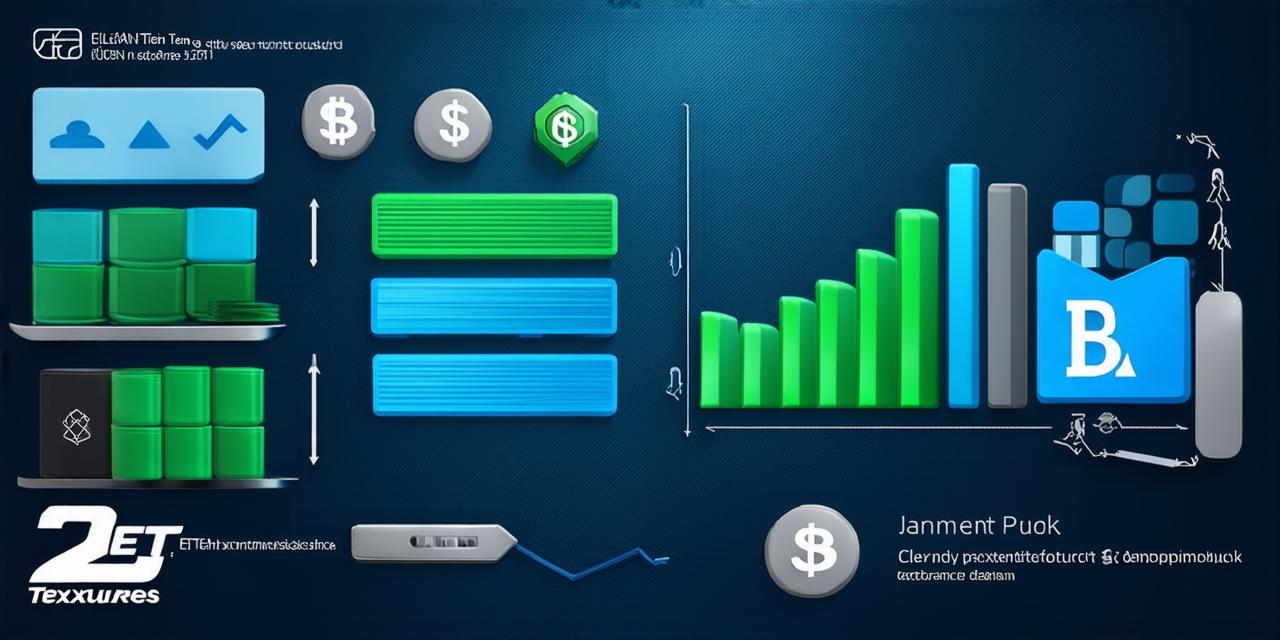In recent years, cryptocurrencies have become increasingly popular among investors and individuals looking for alternative forms of currency. One way that these assets are being traded and managed is through exchange-traded funds (ETFs). But what exactly is a cryptocurrency ETF? And how do they differ from traditional ETFs? In this article, we will explore the basics of cryptocurrency ETFs, their advantages and disadvantages, and how they are being used by crypto developers.

What is an Exchange-Traded Fund (ETF)?
An exchange-traded fund (ETF) is a type of investment vehicle that holds a portfolio of assets, such as stocks or bonds, and trades on an exchange like a stock. Unlike mutual funds, which are only bought and sold at the end of each trading day, ETFs can be traded throughout the day, making them more liquid and accessible to investors.
Cryptocurrency ETFs
Cryptocurrency ETFs are simply ETFs that hold cryptocurrencies as their underlying assets. These funds allow investors to gain exposure to a basket of cryptocurrencies without having to purchase and store individual coins themselves. This can be particularly appealing to those who are new to the world of crypto or who do not have the technical expertise to manage their own digital wallets.
Advantages of Cryptocurrency ETFs
Diversification:
One of the key benefits of investing in a cryptocurrency ETF is that it allows investors to gain exposure to a diversified basket of assets. Rather than putting all their eggs in one basket by investing in a single cryptocurrency, ETFs can hold a range of coins and tokens, providing a more spread-out investment portfolio.
Liquidity:
Professional Management:
Cryptocurrency ETFs are managed by professional fund managers who have expertise in both traditional finance and cryptocurrencies. This can be particularly helpful for those who do not have the technical knowledge or experience necessary to make informed investment decisions in the crypto market.
Accessibility:
Disadvantages of Cryptocurrency ETFs
Higher Fees:
Because cryptocurrency ETFs are relatively new and less liquid than traditional assets, they often come with higher fees than other types of investments. These fees can eat into returns over time, making it more expensive for investors to gain exposure to the crypto market.
Limited Dividends:
Unlike traditional stocks and bonds, which often pay dividends to shareholders, many cryptocurrencies do not generate regular income. This means that investors may not receive any returns on their investments, making it more difficult to grow their wealth over time.
High Volatility:
The crypto market is known for its high volatility, with prices swinging wildly in short periods of time. This can be particularly problematic for those who are new to the world of cryptocurrencies and do not have the experience or knowledge necessary to manage their risk effectively.
Limited Regulation:
The crypto market is still largely unregulated, which can make it more difficult for investors to protect themselves from fraud and other types of financial
